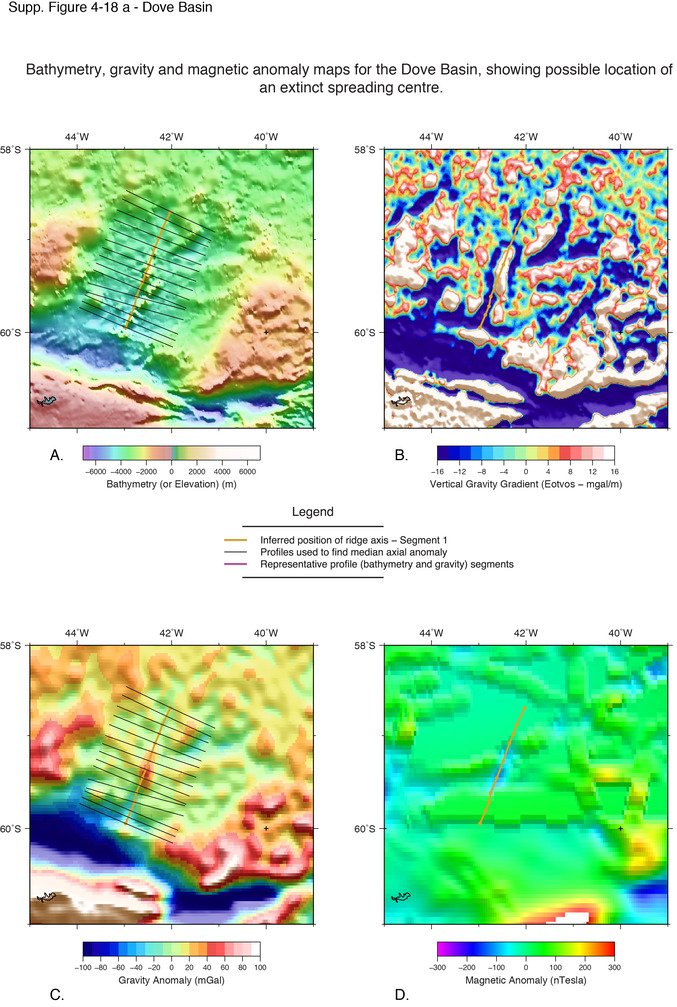| Ocean: | Marginal basin |
| Spreading center type: | Probably small-scale MOR or back-arc spreading centers |
| Time of cessation: | Ca. 34.7 Ma, chron C15 (Eagles et al., 2006) |
| Subsequent active spreading center: | (?) Central Scotia Sea, Bransfield Strait |
| Cessation style: | Not constrained by available data |
| Later deformation or volcanism: | None evident |
Eagles et al. (2006) reviewed available data from the Dove Basin that is situated to the east of the Protector Basin in the southern Scotia Sea. Eagles et al. (2006) argue that identified NNE-SSW trending magnetic anomalies can be non-uniquely identified as sequence C18 to C15, using an ultra-slow spreading rate of between 8 and 12 mm/yr. An identified seamount in the basin, that is shown to be coincident with a marked negative magnetic anomaly is interpreted by Eagles et al., (2006) as a later formed feature. A more recent study of Galindo-Zaldívar et al. (2014) provided absolute-age for mid-ocean ridge basalts dredged from the basin floor of "20.4 ± 2.6 to 22.8 ± 3.1 Ma" and proposed that magnetic anomalies in the basin are C6B and C7. Galindo-Zaldívar et al. (2014) argue that the Dove Basin developed from the Oligocene to the early Miocene as a back-arc spreading center and that it predates that proximal Protector Basin (ID 4-17).
Eagles, G., Livermore, R. and Morris, P., 2006, Small basins in the Scotia Sea: The Eocene Drake Passage gateway, Earth and Planetary Science Letters, v. 242, no. 3-4, p. 343–353.
Galindo-Zaldívar, J., Puga, E., Bohoyo, F., González, F.J., Maldonado, A., Martos, Y.M., Pérez, L.F., Ruano, P., Schreider, A.A., Somoza, L. and Suriñach, E., 2014, Magmatism, structure and age of Dove Basin (Antarctica): A key to understanding South Scotia Arc development, Global and Planetary Change, v. 122, p. 50-69.


